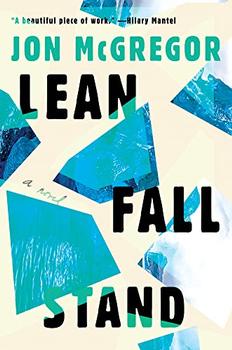Summary | Excerpt | Reviews | Beyond the book | Read-Alikes | Genres & Themes | Author Bio

A Memoir
by Porochista KhakpourPorochista Khakpour can't remember a time when she didn't feel unwell and like she wanted to escape. "I had no idea what normal was. I never felt good," she writes in her bracing memoir, Sick. Although she has struggled with late-stage Lyme disease (see 'Beyond the Book') for about a decade, the feeling of things being not quite right in her body began much earlier. She dates her body dysmorphia to childhood. Born in Iran but raised near Los Angeles, she always felt gawky – too tall, with frizzy hair and no athletic ability. Her body was a site of mysterious ailments like tremors and fainting, so she escaped into books and writing. "I decided the life of the body would be a secret life and that I was in it for the brain anyway."
Related to this sense of not being at home in her body was the feeling of not having a place where she fit in. "There was never a home for me as a human in the world," she writes and as a reflection of this rootlessness she titles the chapters of her book after the places she has lived: Los Angeles, New York City, Baltimore, Chicago, Santa Fe, small-town Pennsylvania, and Leipzig, Germany. Some of these locations are repeated as she rotates through cities looking for somewhere to put down roots and someone to settle down with.
From her drug-fueled college years at Sarah Lawrence to her precarious current life in Harlem with her pet poodle, New York is the one place that keeps recurring. As a child Khakpour emulated her aunt, a chic artist who lived in New York, and it felt like the right place for someone who wanted to be at the heart of literary culture. Despite her nomadic lifestyle, then – a creative writing program in Baltimore, teaching at a small liberal arts college in Pennsylvania, and earning a fellowship place at Leipzig – New York is where she keeps coming back to, and it has provided the cosmopolitan energy behind her two novels, Sons and Other Flammable Objects (2007) and The Last Illusion (2014).
While her professional life took off when her debut was plucked from the publisher's slush pile, poor health has been a barrier to possible success. Throughout Sick, Khakpour gives excellent descriptions of the physical and mental symptoms that hold her back: "First the thick burnt fog of melancholy...[then a] sticky inability to express my thoughts, hot pangs of fear and cold dread at unpredictable times, a foundation of anxiety, and panic...all unified toward that endless evil white, insomnia." Along with the depression that heralds her Lyme relapses come the more stereotypical symptoms of joint pain and muscle aches.
Sick opens with an Author's Note that sets out the facts of Lyme disease as Khakpour has experienced it, so readers know from the start that this is her primary illness. Yet, as she traces her life from late-1970s Iran to present-day New York, we see that she has had Lyme-type symptoms for many years, perhaps even from hiking with her parents in California at age five. She had ironic run-ins with Lyme – a boyfriend's mother had it, as did an old greyhound she adopted – but never considered it could be relevant to her until she came back from a vacation to Mexico in 2009 with a bull's eye rash from a tick bite. This warranted a trip to the ER. Even so, it took two more years to get a definitive diagnosis.
Khakpour's story is a powerful one of being mired in sickness and not getting the necessary help from medical professionals. Doctors insisted her problems were psychological; one even recommended that she check into a psych ward. It's also clear just how time-consuming and expensive being a chronic patient can be. "My full-time job became my health, which was now a mystery illness that was hopelessly complicated by...addiction to psychiatric medications," she confesses. Although she doesn't explain how she arrived at that number, Khakpour estimates that Lyme disease has cost her $140,000 thus far and a lack of money and health insurance likely delayed her diagnosis by years.
There is, unfortunately, some inherent repetition in a book of this nature. At times it feels like an endless cycle of doctors, appointments, and treatment strategies ranging from a paleo diet and alternative medicines to benzodiazepines, drugs used to treat anxiety. The details of her many jobs and relationships can blend into one. However, the overall arc of struggling with one's body and coming to terms with limitations will resonate widely. Chronic illness, particularly the disproportionate effect it has on women, has been a major theme in recent nonfiction. It's this broader context that will bring the author a readership beyond those who recognize Khakpour's name from her fiction and journalism.
![]() This review
first ran in the August 1, 2018
issue of BookBrowse Recommends.
This review
first ran in the August 1, 2018
issue of BookBrowse Recommends.

If you liked Sick, try these:

by Jon McGregor
Published 2022
A thrilling and propulsive novel of an Antarctica expedition gone wrong and its far-reaching consequences for the explorers and their families "leaves the reader moved and subtly changed, as if she had become part of the story" (Hilary Mantel).

by Marty Makary
Published 2021
One in five Americans now has medical debt in collections and rising health care costs today threaten every small business in America. Dr. Makary, one of the nation's leading health care experts, travels across America and details why health care has become a bubble.
Your guide toexceptional books
BookBrowse seeks out and recommends the best in contemporary fiction and nonfiction—books that not only engage and entertain but also deepen our understanding of ourselves and the world around us.